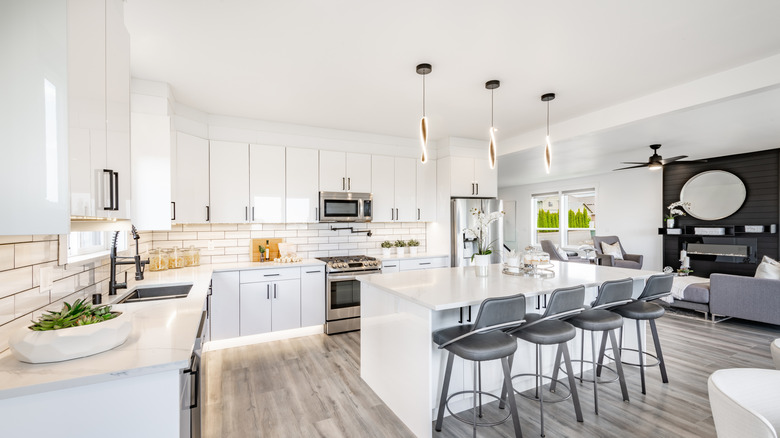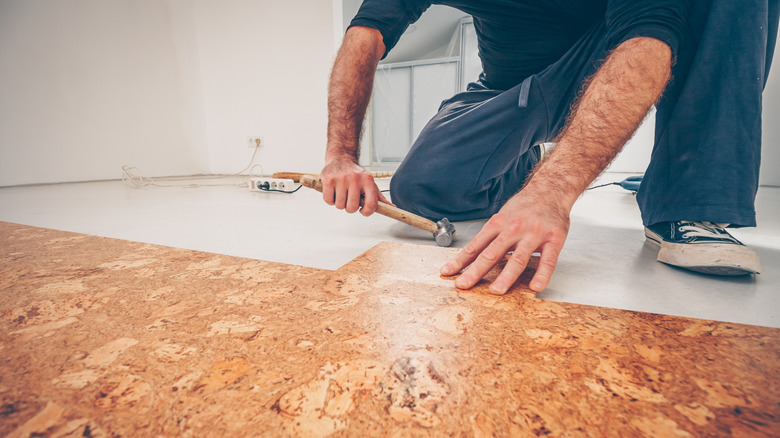Is Vinyl Flooring Going Out Of Style?
Are homeowners moving away from vinyl flooring? For years, vinyl has been one of the most popular flooring options due to its affordability, versatility, and wide range of styles. Homeowners frequently turn to it for an easy upgrade that mimics the look of hardwood or tile without the higher price tag or maintenance requirements. But as we shift into a new era of decor, many designers are suggesting that vinyl may no longer be the go-to choice. Concerns about environmental impact, durability, and health effects are beginning to outweigh its practical benefits for some. Indeed, design experts are starting to think of flooring beyond just appearance — it's now increasingly tied to sustainability and wellness. That's why materials like vinyl and laminate are being replaced by choices that feel more organic and environmentally-friendly.
However, this doesn't mean homeowners who prefer vinyl flooring need to panic. Vinyl is still widely available and remains a budget-friendly choice for many households. The best flooring options for kitchens and bathrooms still include vinyl, since it does better than natural flooring in humid environments. Plus, if you take care of what you already have, it can last for years without showing significant wear. So while vinyl might be shifting out of the design spotlight, it hasn't disappeared. Designers say the style conversation around flooring is moving in new directions, making vinyl a more practical choice than a trendy one.
What's replacing vinyl flooring?
As vinyl flooring loses some of its interior design luster, homeowners are gravitating toward flooring that feels more natural and timeless. Hardwood, engineered wood, and even sustainable alternatives like cork and bamboo are showing up more often in design forecasts. These options appeal to buyers who want materials that age gracefully, can be refinished, and contribute to healthier indoor air. Wellness-driven design is especially influential right now, with many people considering how every element of their homes can affect their long-term comfort and health. That's one of the biggest reasons prompting a shift away from vinyl — it relies on synthetic materials, often made with PVC and chemical additives. Designers argue that this change isn't just about looks, it's about aligning homes with values like sustainability and durability.
For those exploring alternatives, this change can be inspiring rather than daunting. Wood finishes are trending toward lighter tones and matte textures, which add warmth without overwhelming a space. Even stone-look tiles are making a comeback, offering durability with a more organic feel. If you're weighing flooring choices, it's worth noting that flooring upgrades that can increase your home's value often lean toward authentic materials rather than synthetics. And as sustainable flooring trends increase in popularity, investing in materials that blend durability with eco-conscious design is likely to remain relevant far longer than any short-lived flooring fad.

